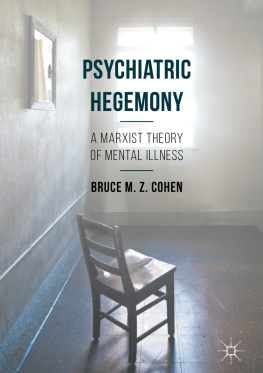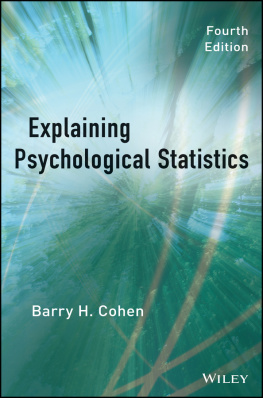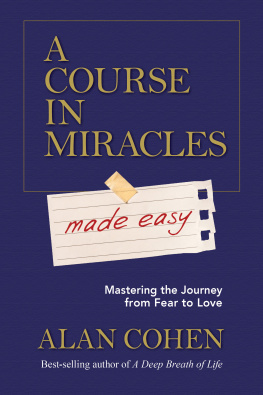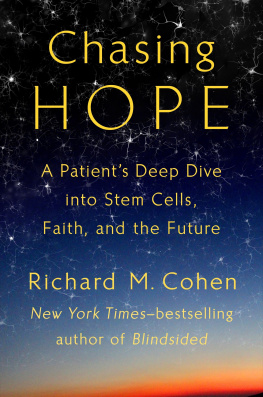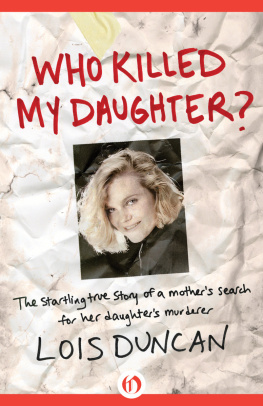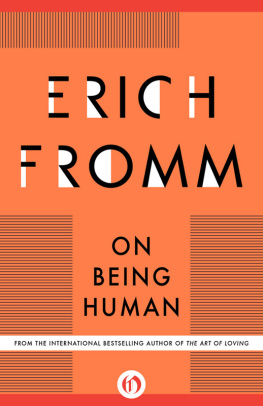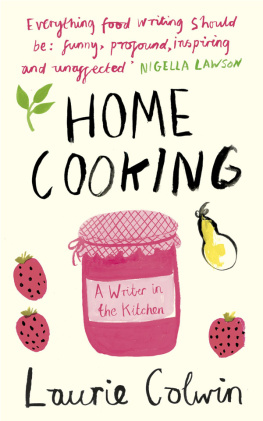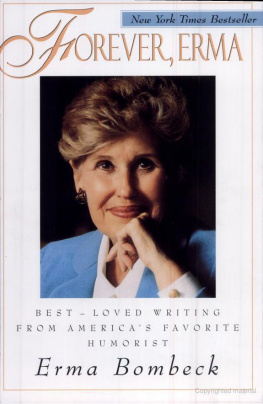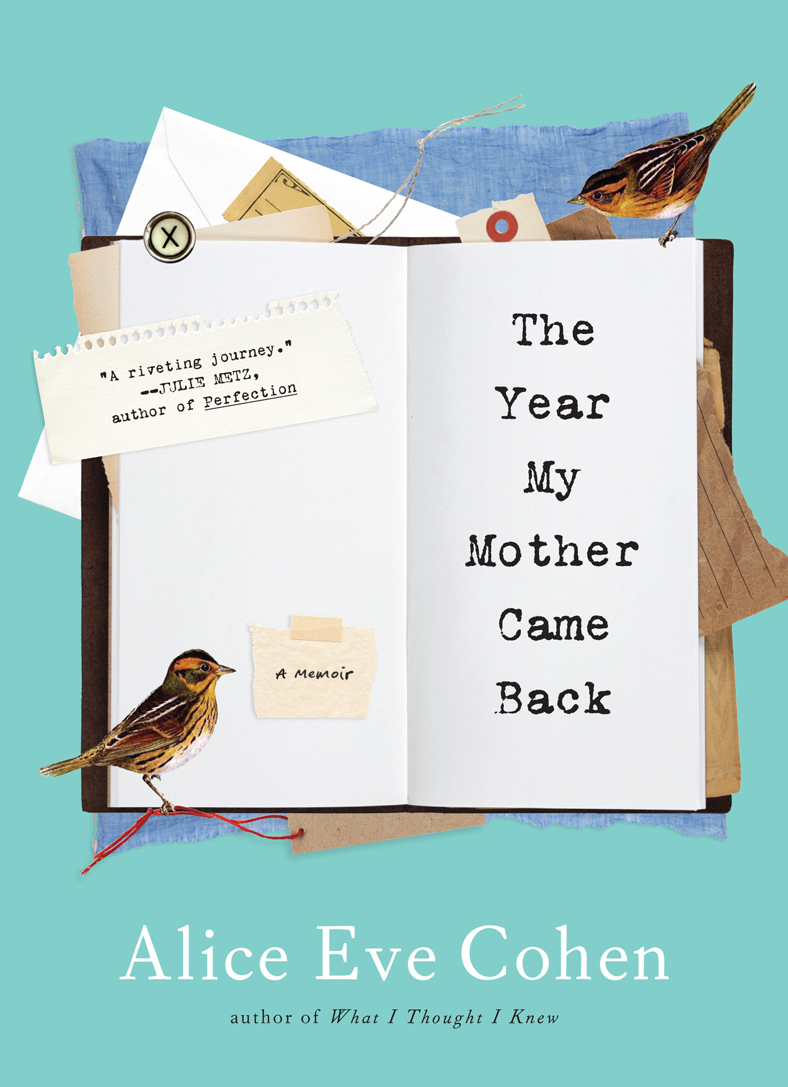THE YEAR
MY MOTHER
CAME BACK
Alice Eve Cohen

ALGONQUIN BOOKS OF CHAPEL HILL 2015
ALSO BY ALICE EVE COHEN
What I Thought I Knew
For
my mother
and
my daughters

Authors Note
As this is a memoir, my telling of the events in this book is filtered through the lens of memory and emotion and has been altered by the passage of time. Ive changed names and identifying details of some individuals to protect their privacy. Conversations and dialogues have been modified by memory and sometimes intentionally compressed and reshaped for narrative purposes. I have also included the dreams and fantasies that were an integral part of my experience, which took place only in my imagination and on these pages.
Contents

One day, my brilliant, beautiful, complicated mother appeared at my kitchen table, thirty-one years after her death.
This is a story of mothers and daughters. My mother, my daughters. My mothers daughters, my daughters mothers. This is the story of a year.

PART 1
What we, or at any rate what I, refer to confidently as a memorymeaning a moment, a scene, a fact that has been subjected to a fixative and thereby rescued from oblivionis really a form of storytelling that goes on continually in the mind and often changes with the telling.
WILLIAM MAXWELL, So Long, See You Tomorrow
ONE
She pulled the blue-checkered dish towel off the mixing bowl. The dough was twice as big as it was an hour ago. My mother was amused by my open-mouthed astonishment. Her smile was beautiful, colored with bright red lipstick.
Punch it down, Honeylamb.
The dough was warm and elastic, deflating under my tiny fists, exhaling a sweet, earthy smell. When it was back to its original size, she emptied it onto the floured board, and it surrendered to her confident hands.
Your turn, Alice.
I jabbed. I poked.
Like this. She stood behind me, reached around my shoulders, and placed her hands on the dough. I put my hands on hers. She pushed forward with the heel of her palm, folded it back, forward, back, we kneaded in unison, like rowing a boat, like our purring cat scratching the sofa, like Daddy waltzing me around while I stood on his feet, like Mommy giving me a backrub at bedtime. I basked in the euphoria of her touch.

I wipe my tear-streaked face with the back of my hand, surprised and embarrassed to be crying in the schoolyard on a hot Friday afternoon, waiting to pick up Eliana. One more week of school. A sparrow takes two staccato hops toward me on the green wooden bench. A gust of wind blows my long hair in all directions. The sparrow flies away.
Why am I crying? Why am I thinking about my mother so much today?
Oh, yeah. Because its June.
I dont think about Mom anymore. Well, not much. Once in a long while, in fits and starts. I sometimes find myself writing about her, my fingers typing her onto the page, unbidden. On the Jewish High Holidays, the two days in the year I go to synagogue, I think about her while reciting the Mourners Kaddish, the prayer for the dead, which I read phonetically, having never learned Hebrew. Sometimes I dream about her, but I rarely remember the details.
And every year in late June, I suddenly get sad and wonder why Im crying, until I remember that Mom died in June. Thirty-one years ago. June 29, 1977. My summer-solstice mood swing takes me by surprise every year, even though its as predictable as the days getting warmer. By the start of July, its over.
Thirty-one years is a long time. My mother has become a character from a story I used to know; a face from an old photograph, the colors faded, her features blurry. Sensory fragments emergethe smell of her hair, the warmth of her hands, the melody of her voice, the sound of her typing and typing and typing.
I used to think about Mom all the time, the good parts and the bad parts. After she died, my thoughts would reflexively turn to her. Id have an impulse to pick up the phone and call her, catch up on the days events, tell her when Id fallen in love, invite her to my performances. In darker moods, Id want to summon her to our old battlegrounds, to demand explanation and apology, or offer my own.
Over time, I stopped wishing for her. With great effort, I stopped thinking about her. It hurt too much, too closely resembled the angst of unrequited love. Now I cant remember what I tried so hard to forget. I exiled her, like banishing an errant ex-boyfriend from my thoughts; burying my memories of her as deep as I could, so my unrelieved longing for herand my anger at herwould go away.
Except in June.
Every June shes in my thoughts, whether I want her there or not.
I picture my mother the last time I saw her, when she told me, This is the first time in years that I am truly happy.
The school bell rings. I look for Elianas third-grade class in the sea of children streaming out the doors into the sunbaked schoolyard, giddy in anticipation of summer vacation.
TWO
Eliana approaches the finish line, her long braids swinging from side to side as she runs. She looks unmistakably like Michaels daughtersame light brown, wavy hair, fair complexion, and slightly crooked grin. No trace of my Mediterranean looks, dark straight hair, dark eyes, olive complexion. Elianas luminous green eyes, which change color depending on the light, are hers alone.
Her gait at the end of three miles is slightly off-kilter, a dancerly step-leap, step-leap, step-leap. She puts less weight on her right foot, which is not as cushioned, because of the inflexible shoe lift. Her right leg is three inches shorter than the left. Her head tilts slightly to the right, compensating for the shorter side of her body, something she does when shes tired or when her muscles are tight, a distant echo of her infant scoliosis. When she was born, her tiny, asymmetrical body was curved like the letter C. The doctor said she might never walk. Today, she ran three miles!
She runs under the arch of purple balloons and joins her team, ten ebullient girls jumping up and down in a group hug. Today is the culminating event of the citywide after-school program, Girls on the Run. We head over to celebrate with a team breakfast on the pier, which the city has recently transformed from an abandoned wreck of rotting wood into an idyllic park with a sublime view of the Statue of Liberty.
This was an extraordinary year for Eliana. When she was younger, she couldnt keep up with other kids. Now, shes one of the fastest girls at tag. It took Elianas determination and the joint efforts (pun intended) of her gifted physical therapists, from the time she was two months old, to straighten her curved spine, overcome the physical challenges of asymmetry, andlike personal trainers coaching a diminutive Olympianmaximize her athletic potential.
For the first time in her life, shes as tall as other kids her age. Since kindergarten, she has taken a daily injection of growth hormone to compensate for her growth disorder. Even more impressive than these physical gains, with the attentive guidance of her third-grade teacher, shes evolved from an insecure and shy seven-year-old into a socially and academically confident eight-year-old. At the beginning of third grade she hated writing and said she was terrible at it. Last week, she wrote:


